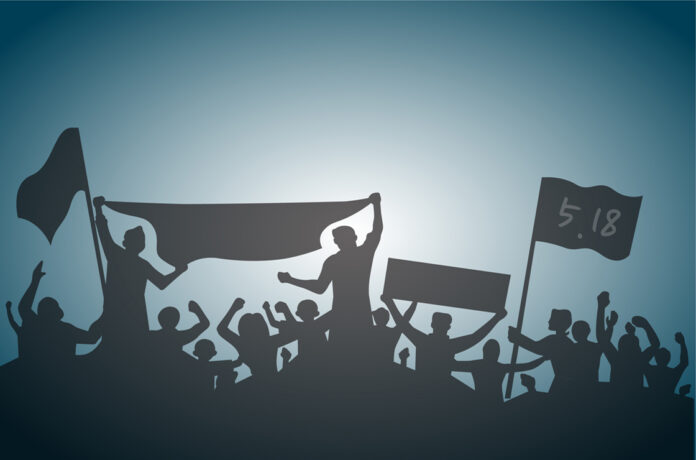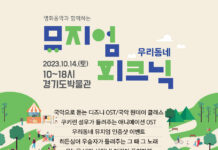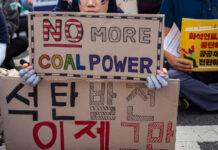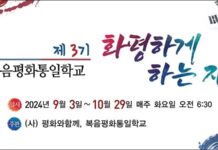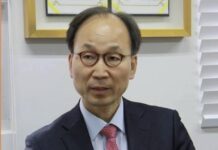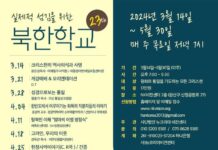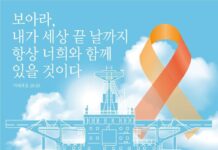Democracy in Korea and Gwangju
오늘은 5·18 광주 민주화 운동의 44주년을 기념하는 날입니다. 1980년 5월, 대한민국 광주에서 발생한 이 운동은 신군부의 비상계엄 전국 확대에 대한 반발로 시작되었으며, 계엄군의 폭력적인 진압으로 많은 시민들이 희생되었습니다. 이 사건은 한국 민주주의의 중요한 전환점이 되었고, 민주화를 향한 국민들의 열망을 더욱 강화시켰습니다.
당시 시민군과 계엄군 간의 교전은 격렬했으며, 계엄군은 무차별적인 학살을 자행했습니다. 주남마을과 송암동에서 발생한 민간인 학살 사건은 국가폭력의 대표적인 예로 꼽힙니다. 이러한 사건들은 5·18 민주화 운동의 진상규명 과정을 통해 밝혀졌으며, 계엄군에 대한 검찰 고발안이 제출되었습니다.
5·18 민주화 운동 당시 계엄사령관이었던 전두환은 학살 책임자로 지목되어 왔습니다. 그의 책임은 여러 조사와 증언을 통해 명확해졌으며, 전두환은 잔혹한 유혈 진압에 대해 사죄하지 않았습니다. 그의 대통령 취임은 많은 이들에게 논란의 대상이 되었으며, 그의 정권은 국민의 기본권을 억압하고 민주주의의 기본인 삼권 분립을 파괴하는 등의 악행으로 기억됩니다.
5·18 민주화 운동의 영향력은 세계적으로 확산되었습니다. ‘님을 위한 행진곡’이라는 노래는 이 운동을 기리기 위해 만들어졌으며, 한국 민주주의의 상징적인 가요로 자리 잡았습니다. 이 노래는 홍콩의 우산 혁명과 미얀마의 민주화 운동 등지에서도 한국어와 현지어로 불려지며, 한국의 민주화 운동이 전 세계적으로 민주주의와 인권을 열망하는 마음을 담아 공감과 연대의 메시지를 전달하는 데 중요한 역할을 해왔습니다. 또한, 영화 ‘서울의 봄’은 전두환 신군부의 군사 반란과 정권 탈취 과정을 담아내며, 그의 통치가 한국 민주주의에 끼친 부정적 영향을 강조합니다.
https://youtu.be/L7Ca0u0xUBk?si=RPIUbRDEsRtIRwbW
한국인들의 민주화에 대한 불굴의 의지는 1919년 3.1 운동의 정신을 계승한 대한민국 임시정부의 수립으로 거슬러 올라갑니다. 3.1 운동은 일제 강점기에서 조선의 민중들이 최초로 민주주의를 천명한 사건으로, 한국인들의 자주 독립 의지를 전 세계에 알린 중요한 역사적 사건입니다. 이 운동은 일제의 억압에 맞서 조직적이고 평화적인 방식으로 저항한 것으로, 한국 민주주의의 발전에 큰 영향을 미쳤습니다.
이러한 역사적 사건들은 오늘날 한국이 민주주의와 인권을 위해 얼마나 많은 희생과 투쟁을 겪어왔는지를 상기시켜 줍니다. 동학운동, 4.19혁명, 부마민주항쟁, 6.29 선언, 그리고 촛불시위 후 이루어진 박근혜 대통령의 탄핵까지, 한국 민주주의의 역사는 국민들의 끊임없는 투쟁과 헌신으로 이루어졌습니다.
한국의 민주화 역사는 국민들의 끊임없는 투쟁과 헌신으로 이루어졌습니다. 1894년에 발생한 동학운동은 조선 시대 농민들이 부패한 관료들과 외세의 침략에 맞서 일으킨 무장 봉기였으며, 사회적, 경제적 개혁을 요구했습니다. 이 운동은 조선의 근대화와 독립을 위한 중요한 발판이 되었습니다.
1960년의 4.19 혁명은 이승만 정권의 부정선거와 독재에 맞서 학생과 시민들이 일으킨 민주 항쟁으로, 이승만 대통령의 하야와 제2공화국의 출범을 이끌었습니다. 이 혁명은 한국 민주주의의 첫 번째 대규모 민주화 운동이었습니다.
1979년의 부마민주항쟁은 박정희 대통령의 유신 정권에 대항한 시위로, 부산과 마산에서 발생했습니다. 이 항쟁은 유신 체제의 종식과 10·26 사태에 영향을 미쳤으며, 후에 5·18 광주 민주화 운동과 6월 항쟁에 영감을 주었습니다.
1987년의 6.29 선언은 노태우 대통령 후보가 발표한 연설로, 직선제 개헌과 민주화를 요구하는 국민들의 목소리를 받아들였습니다. 이 선언은 대통령 직선제를 포함한 민주적 개혁을 약속했으며, 그해에 제6공화국 헌법이 공포되었습니다.
최근에는 촛불시위가 박근혜 대통령의 탄핵으로 이어졌습니다. 2016년 말부터 2017년 초까지 수백만 명의 시민들이 촛불을 들고 거리로 나와 박근혜 대통령의 퇴진을 요구했으며, 이는 대통령 탄핵과 새로운 정부의 출범으로 이어졌습니다.
Today marks the 44th anniversary of the Gwangju Democratization Movement. In May 1980, this movement began in Gwangju, South Korea, as a response to the nationwide expansion of martial law by the new military regime, leading to the violent suppression and sacrifice of many citizens. This event marked a critical turning point in South Korea’s democracy, intensifying the nation’s aspiration for democratization.
The confrontation between the civilian militia and the martial law forces was intense, with the latter committing indiscriminate massacres. The civilian massacres in Junam Village and Songam-dong stand as stark examples of state violence. These incidents were revealed through the investigation process of the Gwangju Democratization Movement, and prosecution proposals were submitted against the martial law forces responsible.
Jeon Doo-hwan, the martial law commander during the movement, has been identified as the person responsible for the massacre orders. His responsibility has been clarified through various investigations and testimonies, and he did not apologize for the brutal suppression of the movement. His presidency was controversial, remembered for oppressing citizens’ basic rights and destroying the fundamental principle of separation of powers, essential for democracy.
The influence of the Gwangju Democratization Movement has spread worldwide. The song ‘March for the Beloved’ was created to commemorate the movement and has become a symbolic anthem of Korean democracy. This song has been sung in Korean and local languages during democratization movements in places like Hong Kong’s Umbrella Revolution and Myanmar’s democratic protests, demonstrating how the Korean democratization movement has played a vital role in conveying messages of empathy and solidarity for democracy and human rights worldwide. Additionally, the movie ‘Spring of Seoul’ depicts the military coup and power seizure process of Jeon Doo-hwan’s new military regime, emphasizing the negative impact his governance had on the democracy of Korea.
The unyielding spirit of Koreans for democracy dates back to the establishment of the Provisional Government of the Republic of Korea in 1919, following the spirit of the March 1st Movement. This movement was the first declaration of democracy by the Korean people under Japanese colonial rule, a pivotal event that announced the Korean will for independence to the world. It represented an organized and peaceful resistance against Japanese oppression, significantly influencing the development of democracy in Korea.
These historical events remind us of the many sacrifices and struggles that Korea has undergone for democracy and human rights. From the Donghak Peasant Revolution, the April 19 Revolution, the Bu-Ma Democratic Protests, the June 29 Declaration, to the impeachment of President Park Geun-hye following the candlelight protests, the history of Korean democracy has been shaped by the relentless struggle and dedication of its people
The history of democratization in Korea has been shaped by the relentless struggle and dedication of its people. The Donghak Peasant Revolution in 1894 was an armed uprising by peasants against corrupt officials and foreign invasions, demanding social and economic reforms1. This movement became a crucial stepping stone for Korea’s modernization and independence.
The April 19 Revolution in 1960 was a democratic protest against electoral fraud and dictatorship by President Syngman Rhee, leading to his resignation and the establishment of the Second Republic of Korea2. It was the first large-scale democratization movement in Korean democracy.
The Bu-Ma Democratic Protests in 1979 were demonstrations against President Park Chung Hee’s Yushin regime in Busan and Masan. These protests contributed to the end of the Yushin system and influenced the events of October 26, inspiring later movements such as the Gwangju Democratization Movement and the June Struggle3.
The June 29 Declaration in 1987 was a speech by presidential candidate Roh Tae-woo, accepting the people’s demand for constitutional amendment and democratization. It promised democratic reforms including direct presidential elections, leading to the promulgation of the constitution of the Sixth Republic of Korea later that year.
More recently, the candlelight protests led to the impeachment of President Park Geun-hye. From late 2016 to early 2017, millions of citizens took to the streets with candles, demanding Park’s resignation, which resulted in her impeachment and the establishment of a new government.

